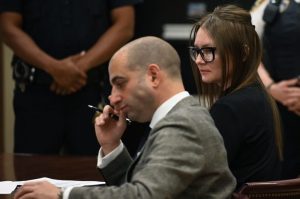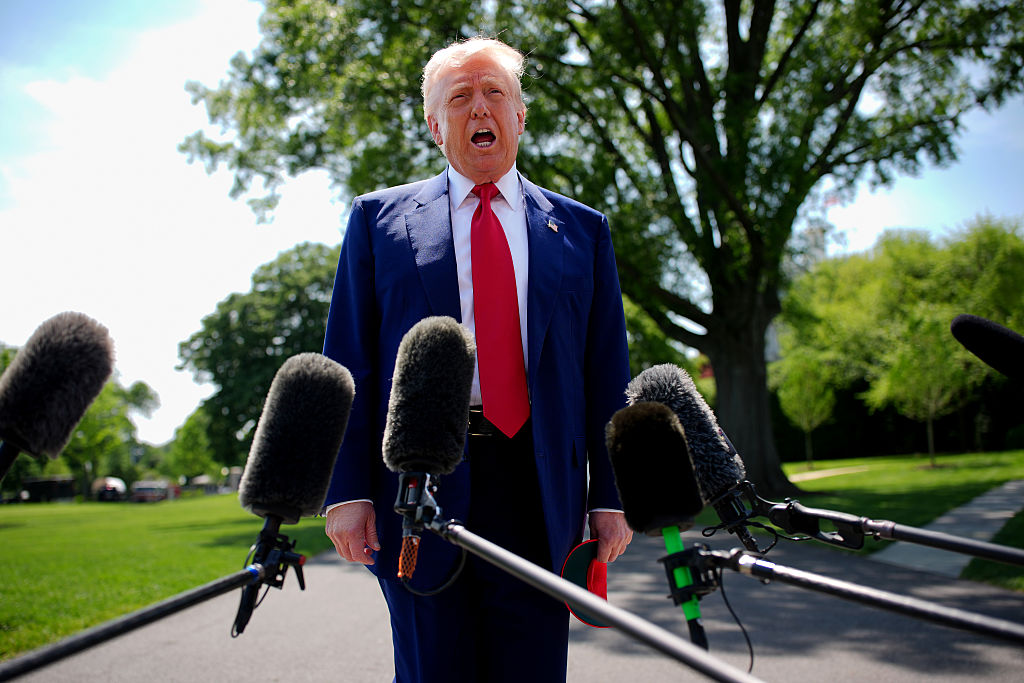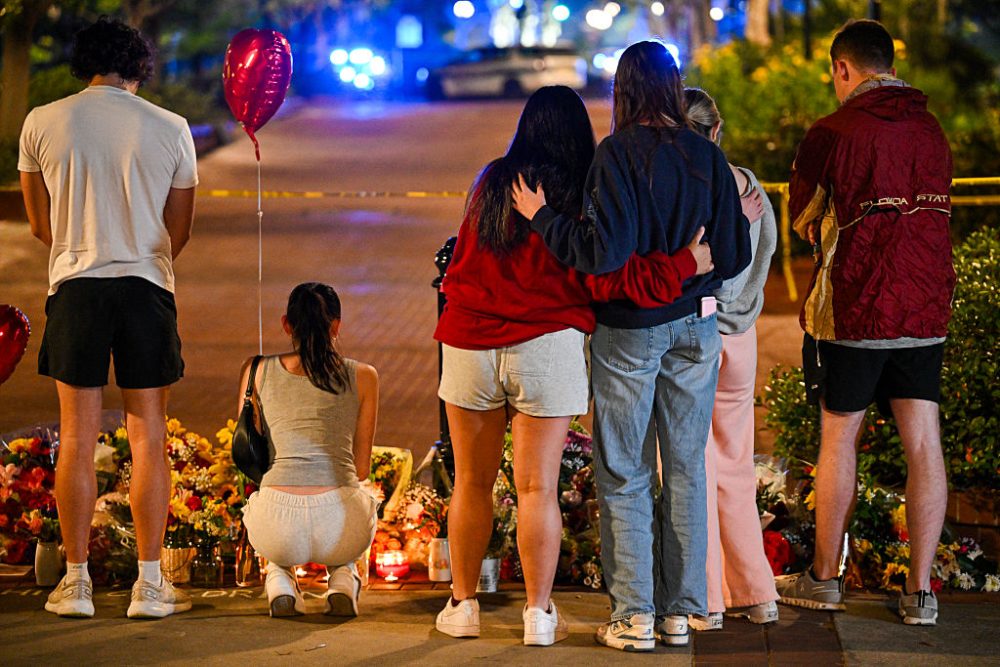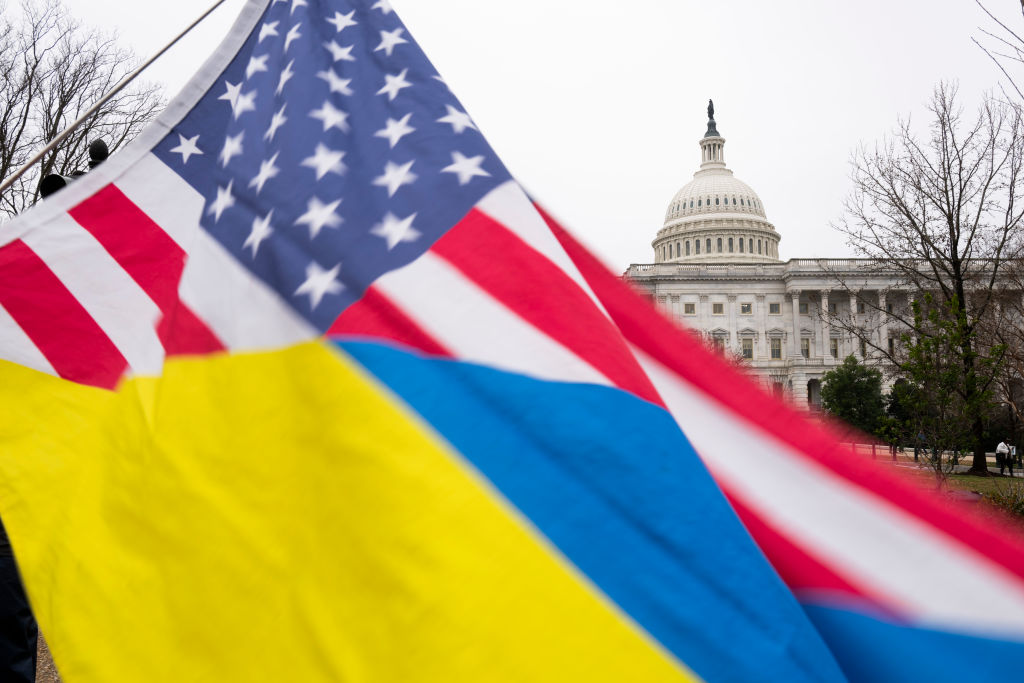The FBI’s additional background check on Brett Kavanaugh isn’t the only document regarding President Donald Trump’s Supreme Court nominee being presented to the Senate today. On Wednesday night, the New York Times published online a letter headlined ‘The Senate Should Not Confirm Kavanaugh, Signed, 650 Law Professors.’ By Thursday, the number of signatories had jumped to more than 1,700. The letter comes as Senate majority leader Mitch McConnell set in motion events that will likely result in a final vote on Kavanaugh’s appointment early Saturday evening.
Word had it that the FBI hadn’t found any additional evidence to corroborate Christine Blasey Ford’s allegation that Kavanaugh attempted to rape her when they were high school students. But the letter published by the Times isn’t about the claim that derailed — at least temporarily — Kavanaugh’s elevation to the highest court in the land. ‘Judicial temperament is one of the most important qualities of a judge,’ it begins, and it goes on to argue that Kavanaugh’s behaviour in front of the Senate Judiciary Committee during last week’s hearing proves he’s an ill fit for the court.
Some of its arguments are stronger than others. Here’s one that should be seriously considered: ‘Instead of trying to sort out with reason and care the allegations that were raised, Judge Kavanaugh responded in an intemperate, inflammatory and partial manner, as he interrupted and, at times, was discourteous to senators.’ A low point of the final Kavanaugh hearing was when Democratic senator Amy Klobuchar asked Kavanaugh if he’d ever drank to the point of blacking out. Instead of answering immediately, he turned the question back on her. He realised his mistake during a break — or someone pointed it out to him — and he apologised to the senator on his return.
But here’s a theme that gets more space: ‘Even in his prepared remarks, Judge Kavanaugh described the hearing as partisan, referring to it as ‘a calculated and orchestrated political hit,’ rather than acknowledging the need for the Senate, faced with new information, to try to understand what had transpired,’ one sentence of the letter reads. It’s hard to believe anyone could have watched last week’s hearing and declare it wasn’t ‘partisan.’ No matter which side of the aisle you prefer — some members of both the Republican and Democratic parties engaged in showboating and showed little interest in trying ‘to understand what had transpired.’ Cory Booker, one of the Democratic senators who insisted beforehand that Ford must be ‘heard,’ gave the California professor about 30 seconds of his five minutes of hearing time to speak. Instead of asking questions, he gave a speech. He wasn’t the only one.
The letter later states, ‘As you know, under two statutes governing bias and recusal, judges must step aside if they are at risk of being perceived as or of being unfair. As Congress has previously put it, a judge or justice ‘shall disqualify himself in any proceeding in which his impartiality might reasonably be questioned.’ These statutes are part of a myriad of legal commitments to the impartiality of the judiciary, which is the cornerstone of the courts.’ This seems a bit rich, as I didn’t see any of these legal professionals write letters to the Senate protesting the perceived bias of Supreme Court justice Ruth Bader Ginsburg. During the 2016 election campaign, she told the New York Times, in an interview conducted in her court chambers, ‘I can’t imagine what this place would be — I can’t imagine what the country would be — with Donald Trump as our president.’
That’s not the only reason I question the seriousness of the signatories’ devotion to nonpartisanship. The Times trumpets the number of names in its headline, giving an impression that legal academia is overwhelmingly against Kavanaugh’s appointment for reasons strictly of temperament not politics. But take a look at those names. I couldn’t find an obvious right-winger in the bunch, though there are plenty of liberal legal stars listed, such as Harvard law professor Laurence Tribe, a fan of anti-Trump conspiracy theories. Of course, there are some more than respectable figures who signed as well, such as a former dean of Harvard Law School, Martha Minow. Harvard is well-represented, in fact, and one suspects Kavanaugh made the right decision in announcing this week that he would not teach a course on the Supreme Court at the school in January as previously planned. Judge Nancy Gertner (Ret.) is another Harvard signatory, though without a title, as most signers have listed. Perhaps that’s because she’s not actually what one normally thinks of when one hears the term, as the Times had in the headline, ‘law professor.’ She’s a ‘professor of practice,’ which many universities classify as an adjunct professor, the title often given people who lecture but aren’t full, tenure-track professors. These professors tend to teach clinics. Dozens of the letter’s signatories list titles like this, even if Gertner left hers out. A similar title that dozens of the signatories list is some variation of ‘professor of legal writing.’ Such positions do not approach the prestige of the law professor full-stop.
The universities represented by the signers run the gamut from the top-tier Harvard and Yale to the less estimable Roger Williams University School of Law and University of Baltimore School of Law. Barely represented are schools known to be, bucking the trend in legal academia, bastions of right-wing faculty. There are hardly any professors on the list from Notre Dame and Chapman, and the only person listed from George Mason University’s Antonin Scalia Law School is a temporary visiting assistant professor. Not a single one of the 28 conservative or libertarian law professors who signed a letter last year urging the Association of American Law Schools to address ‘political discrimination’ signed onto the Times letter.
There’s one other anti-Kavanaugh letter from within legal academia destined for the Senate, this one from female professors. ‘Judge Kavanaugh has shown that he is unable to respect women in positions of power, manifests bias with respect to gender and political affiliation, does not meet basic standards of professionalism, and lacks independence, impartiality, and judicial temperament,’ it declares. Some of its signers also appear on the Times letter.
The Senate Judiciary Committee hearings last week featuring Ford and Kavanaugh laid bare how partisan the judicial nomination process has become. Legal academics aren’t serving their profession — or the country — well by pretending their objections to this nominee have nothing to do with party or politics. That’s especially true when they’re given the prime real estate of the home page of the New York Times.

























